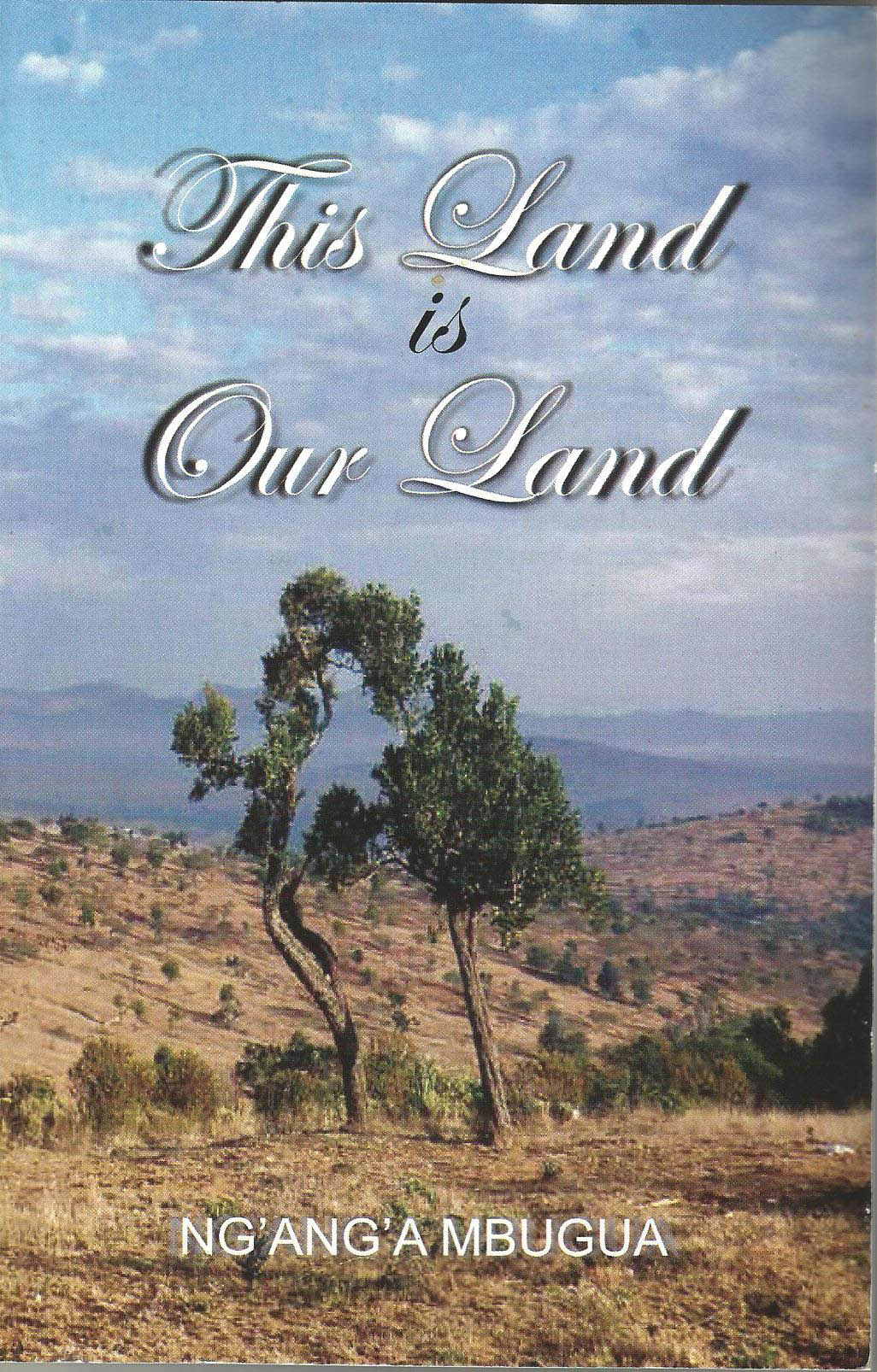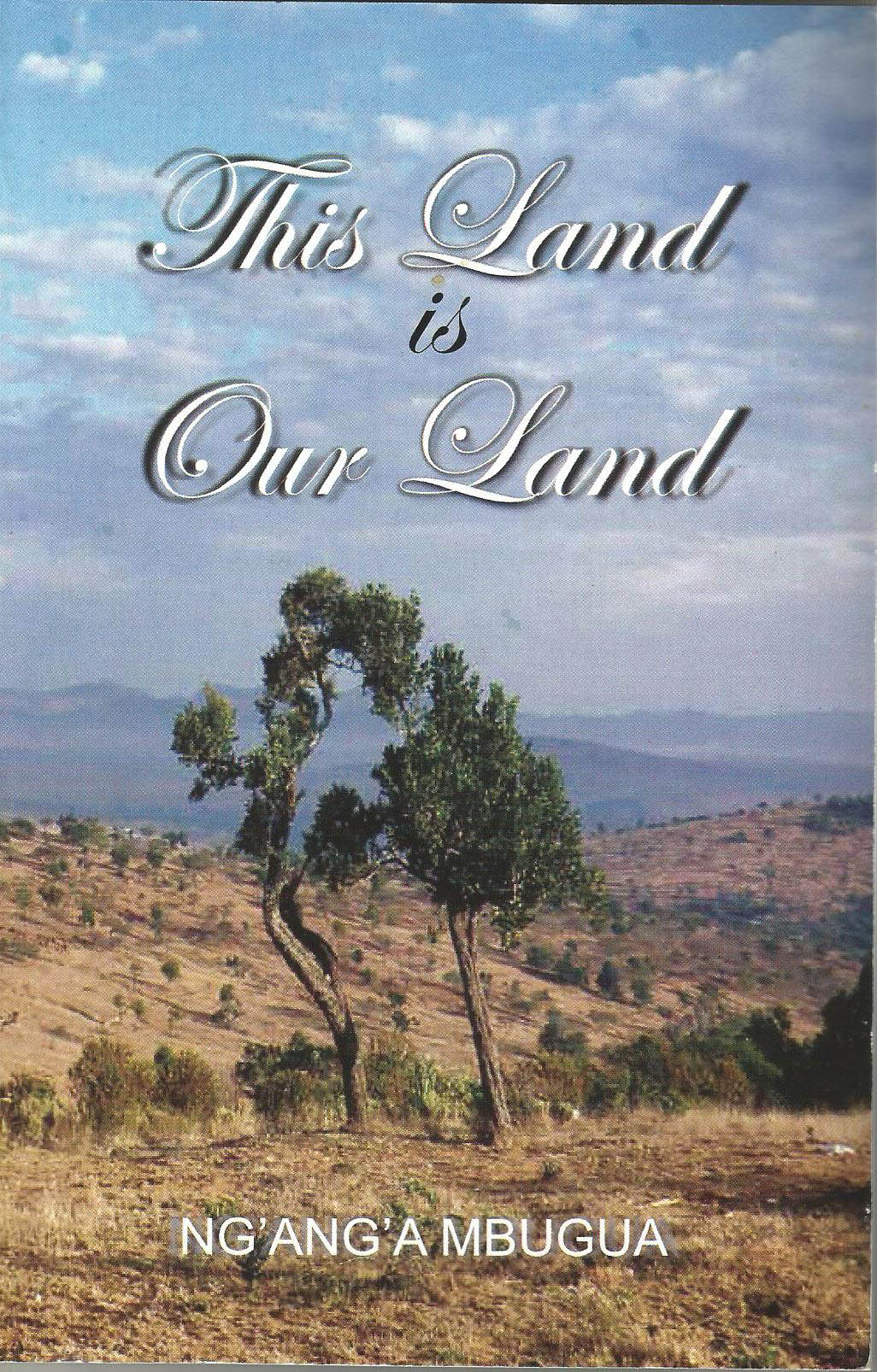A poet, like a spider, works tirelessly spinning silver yarns. He struggles, endures until finally, a pattern is made: a web of beauty; a trap for the reader.
Those are not my words; I have just paraphrased Ng’ang’a Mbugua’s poem A Poet for it beautifully captures what good poetry does to a reader. It rejuvenates the soul, runs away with your imagination and makes you want to create some poetry of your own. At least that is what it does to me.
The above quoted poem is contained in an anthology titled This Land is our Land by Mbugua. In his seminal book Things Fall Apart, the late Chinua Achebe quotes an Igbo proverb that goes something like: “When the moon is shining the cripple becomes hungry for a walk”. For purposes of describing this book, I would have replaced walk with dance, for dancing is more poetic. After reading this collection even the most hopeless of writers would wish to create some poetry.
The vivid imagery in Mbugua’s poems seduces the reader’s imagination and drags you along to that secret world where only talented poets can take you. Take for example that short poem titled The Voice. The poet relives the relief of old Abraham and his son Isaac, when they laid their eyes on that ram, horns entangled in that thicket; specifically delivered to save the young man from the harsh knife wielded by his father.
From the introduction the reader mentally prepares themselves for a sermon on the all-enveloping love of the God of Abraham, Isaac and Jacob, until the poet takes an unexpected if not cheeky detour:
Abraham lifted high his knife
And was about to strike
When out rang a voice
“What do you think you are doing?”
It was the voice
Of the owner of the lamb.
Aside from improbable Bible stories This Land or Land also captures the modern day realities and renders them in a way both entertains the reader and still retains the sting that admonishes our follies without being too preachy. A case in hand is the poem titled You should know people. Here, the poet brilliantly highlights the ever-widening rift between the haves and the have-nots.
‘You should know people’ therefore becomes the metaphor of what the poor should do in order to be ushered into the rarefied world of privilege. Sample this:
In a land where the many and the hungry are one and the same…
It pays to know people
If you are to be spared the pangs of want.
From the title This Land is our Land, one might think that this book is a patriotic ode to the Nation that celebrated 50 years of self-rule. The truth about the poem, however, is that it is a cynical appraisal of the nation our country has morphed into.
The poem is actually a deep-seated cry for peace, while also alive to the fact in the country we find ourselves in ‘real peace’ can never be attained. Or rather, some quarters would not allow for such peace to prevail; and that is why the poet is crying out for ‘just any peace’.
While the meaning in This Land is our Land might be somehow obscured Let’s Create Misery is an open bare-knuckled rebuke of wielders of power and who derive moronic pleasure from the suffering of the masses. Here, the ‘creators of misery’ revel in their ability to make people die; for they will create jobs in morgues, and more jobs ‘for coffin carriers and grave diggers’
And if all the workers die
We’ll have bigger farms
To grow coffee, tea, cotton
No more food crops…
Oh, and there are also some love poems in the anthology as well including a tragic love story of Andrew and Jane who were ostracised by the church brethren, whose tongues began to wag, Casting the little couple in shady light/Preaching that they were far from right.
And who told you African names can’t rhyme? What about The merry old man from Ndumberi, who loved strawberry, and whose love was Njeri. Thus goes the tale of Wanderi.
Mbugua should be commended for investing his hard-earned funds to bring this publication to reality, at a time when mainstream publishers are giving poetry a wide berth and Kenyans think poetry is hard.
This book is selling at sh 350. You can order it through sales@bigbooks.co.ke or through the author at mbugua@bigbooks.co.ke



